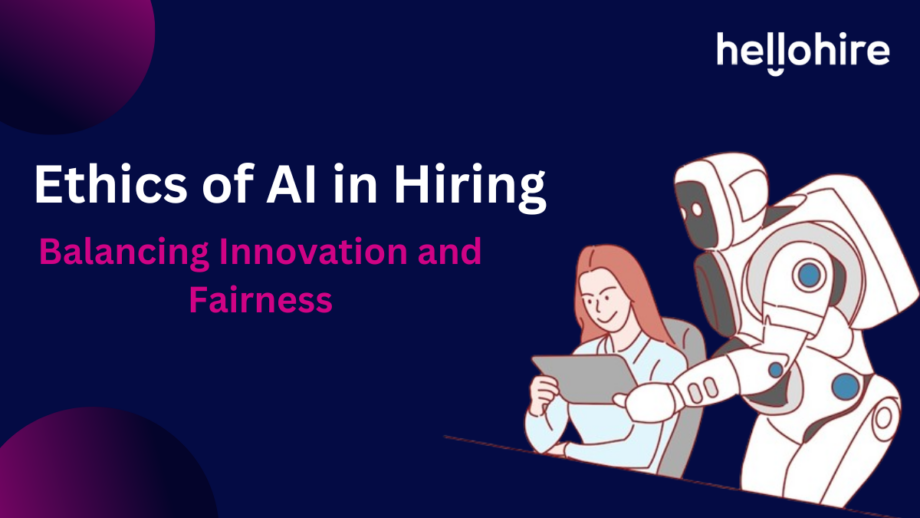The integration of Artificial Intelligence (AI) into hiring processes has unlocked unprecedented opportunities for efficiency and precision. However, it also raises profound ethical questions that demand careful consideration. In this comprehensive exploration, we delve into the complex ethical landscape surrounding AI in hiring, emphasizing the delicate balance between innovation and fairness.
The Bias Challenge
One of the most pressing ethical concerns related to AI in hiring is the potential for bias. AI algorithms are trained on historical data, which may carry embedded biases. These biases can be reflected in the recommendations and decisions made by AI systems, resulting in discriminatory outcomes.
Addressing this challenge requires ongoing vigilance. Organizations must invest in strategies that mitigate bias within AI-driven hiring systems. Regular audits and continuous monitoring can help identify and rectify instances of bias, ensuring that AI remains a tool for fairness and objectivity.
Transparency and Accountability
Transparency is paramount in maintaining the ethical integrity of AI in hiring. To foster trust and accountability, organizations must provide clear explanations of how AI systems operate and the factors influencing their hiring decisions. Transparency extends to candidate communications as well, ensuring that applicants understand the role of AI in the process.
Moreover, accountability mechanisms should be in place to address potential errors or discrimination stemming from AI-driven decisions. Establishing clear lines of responsibility and oversight helps rectify any adverse consequences and reinforces the commitment to fairness.
Legal and Regulatory Landscape
The legal and regulatory framework surrounding AI in hiring is evolving rapidly. Various jurisdictions have begun to enact laws and guidelines to address fairness, transparency, and accountability in AI-driven hiring practices. Notably, in the United States, the Equal Employment Opportunity Commission (EEOC) provides guidelines to prevent discrimination in hiring.
To navigate this complex landscape, organizations should stay informed about relevant laws and regulations. Compliance is crucial to ensuring that AI-driven hiring practices adhere to legal standards and ethical principles.
Mitigating Bias
Mitigating bias in AI-driven hiring is an ongoing process. To reduce bias effectively:
- Organizations can diversify their training data, ensuring that AI models learn from a representative range of examples.
- Implementing diverse hiring panels and committees can bring varied perspectives to the decision-making process.
- Continuous evaluation and refinement of AI systems are essential to identify and address bias systematically.
Candidate Privacy
Concerns related to candidate privacy arise when AI systems process sensitive information, such as personal and professional data. Organizations must uphold robust data protection measures, including secure storage and ethical handling of candidate information. Transparency in data usage and compliance with privacy regulations are paramount to safeguarding candidate privacy.
AI and the Human Touch
Balancing the advantages of AI automation with the need for a human touch in recruitment is a delicate endeavor. While AI streamlines many aspects of hiring, it’s crucial to maintain a personalized candidate experience throughout the process. Human interactions, empathy, and understanding remain central to a positive candidate journey.
In conclusion, the ethical considerations surrounding AI in hiring are multifaceted and essential. Striking the right balance between innovation and fairness requires a commitment to transparency, accountability, and ongoing bias mitigation efforts. As AI continues to play a central role in the hiring landscape, organizations must navigate these challenges thoughtfully to harness its benefits while upholding ethical standards and promoting a fair and inclusive workplace.

